I spent a few days in Oman as part of my recent trip to the Middle East. While Oman previously provided visas on arrival for Canadian and US travellers, nowadays they require you to obtain an e-Visa before arriving in the country. I wanted to share with you my experience in that process, which was mostly straightforward but not without a few moments of uncertainty.
The Oman e-Visa
The Oman e-Visa is handled via a subdomain of the Royal Oman Police website and is available in both Arabic and English. You’ll know you’ve found the right site when you see a rather amusing picture of the Sultan of Oman set against many of Muscat’s important landmarks on the homepage.
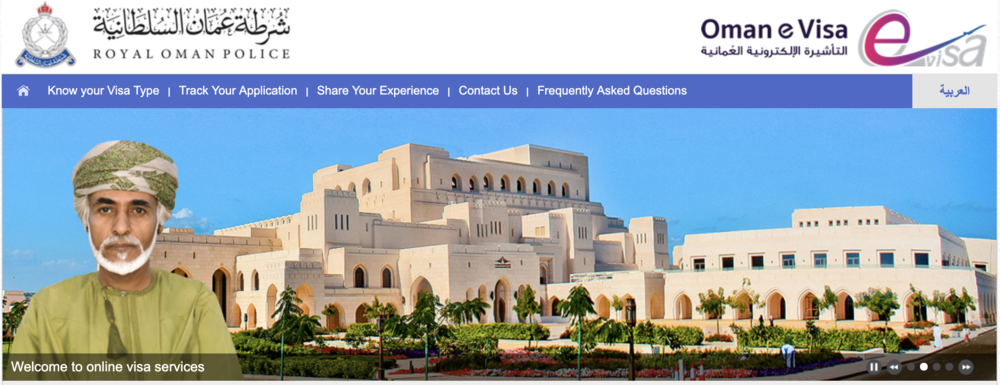
Click on “Know Your Visa Type” to see all the types of e-Visas available. You’ll most likely be applying for an unsponsored visitor visa, and under that category there are about a dozen more sub-types. I myself was applying for a single-entry Tourist Visit Visa (Type 26), but there are a few other visitor visas that might be relevant to you as well.

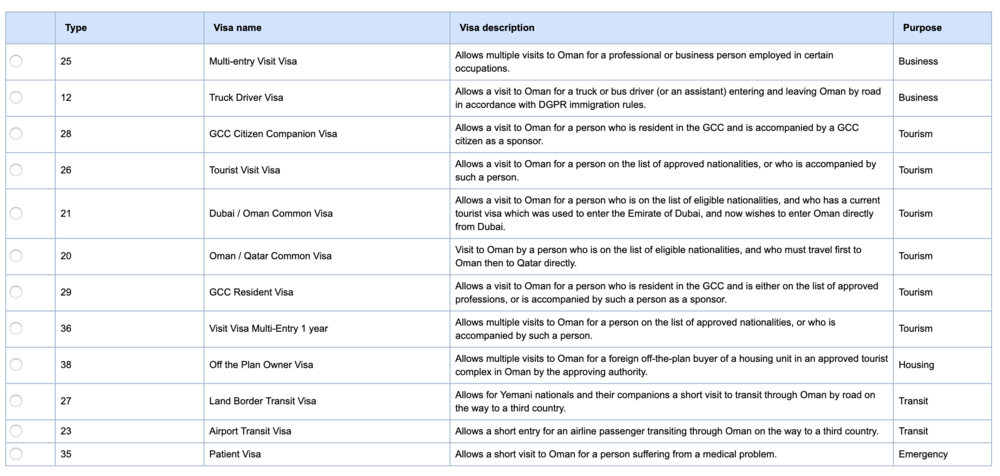
In particular:
-
The Dubai / Oman Common Visa (Type 21) allows visitors to the Emirate of Dubai to subsequently enter Oman directly without having to pay additional visa fees (note that this isn’t applicable to other UAE destinations like Abu Dhabi)
-
The Oman / Qatar Common Visa (Type 20) allows visitors to Oman to subsequently enter Qatar directly without having to pay additional visa fees
-
The Multi-Entry Visit Visa (Type 36) allows you to visit Oman multiple times within a one-year period
-
The Airport Transit Visa (Type 23) allows those with a connection in Oman on their way to a third country to enter Oman for a short visit
While this article is written from a Canadian perspective, citizens from any of the below countries are also classified as “Group 1 countries” by the Royal Oman Police and so will be going through largely the same process:
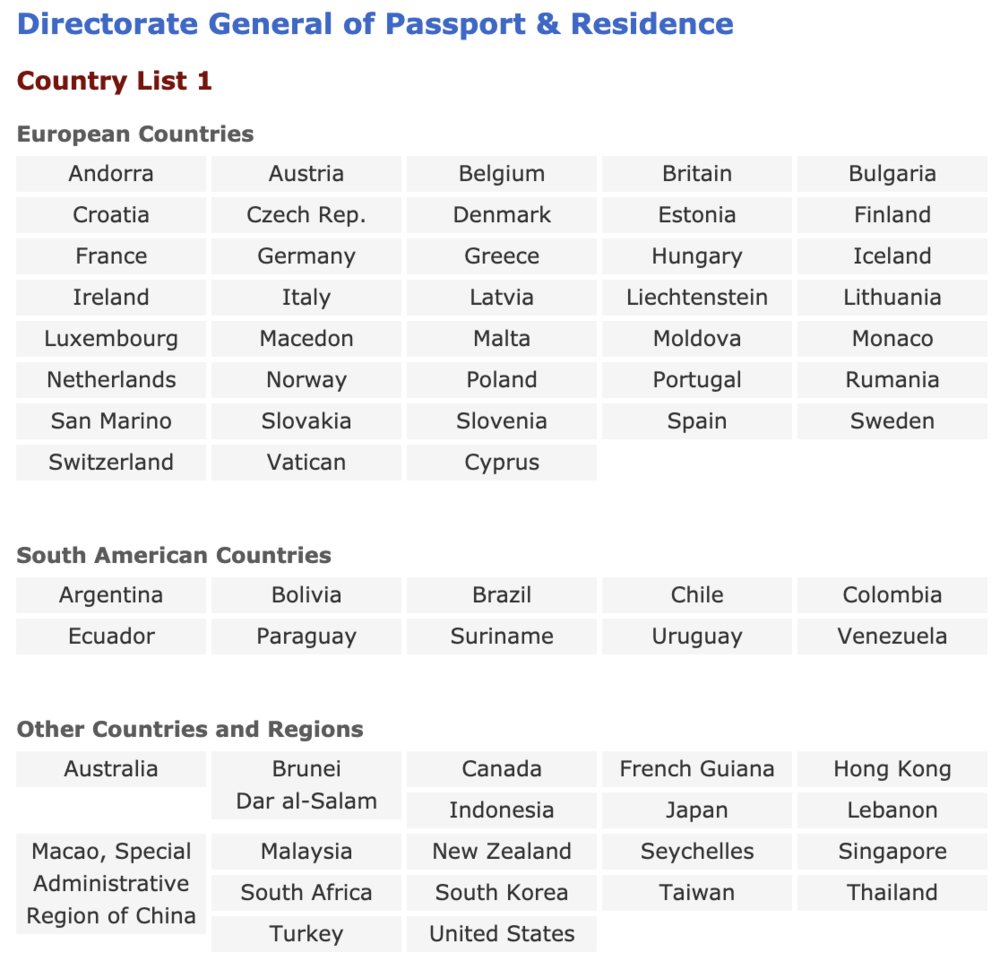
The Application
You must create an online account on the Oman e-Visa website to initiate an application. One person may apply on behalf of the entire travelling party.
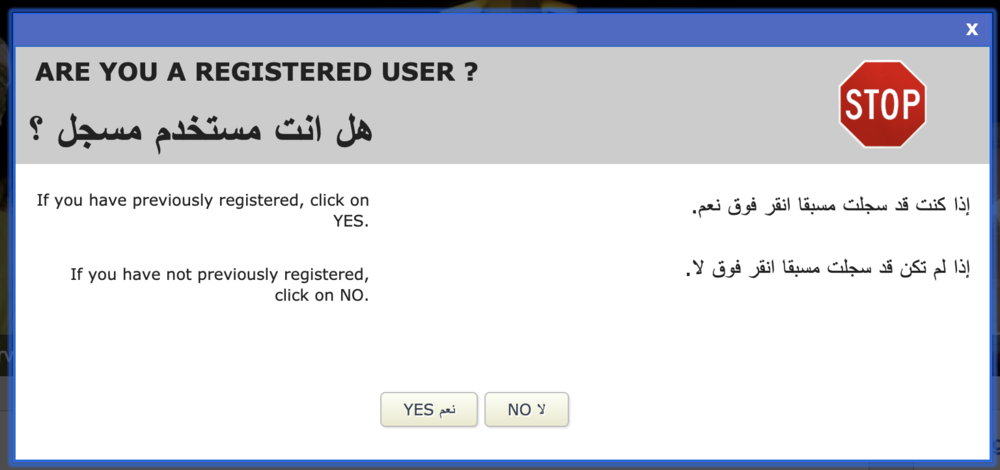
Once you’ve created your account, begin by clicking on “Apply for Visa”, and then “Apply for Unsponsored Visa”.
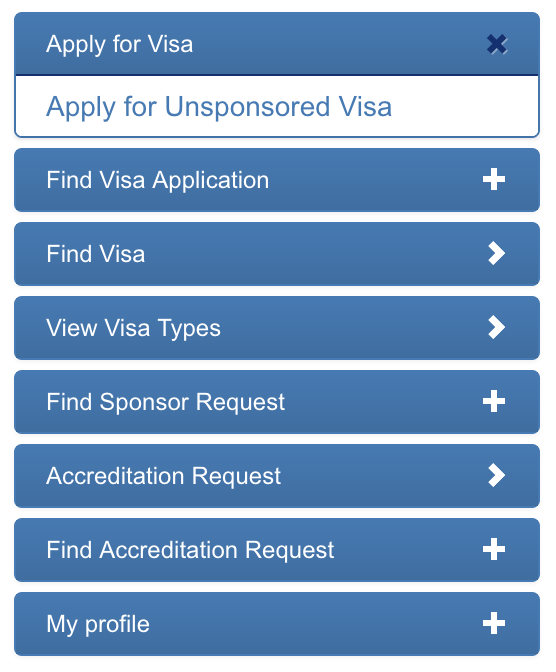
You’ll be taken to a Visa Eligibility Wizard, which asks you for your country of nationality and whether you’re a resident of a fellow Gulf Cooperation Council country (Bahrain, Kuwait, Qatar, Saudi Arabia, UAE).
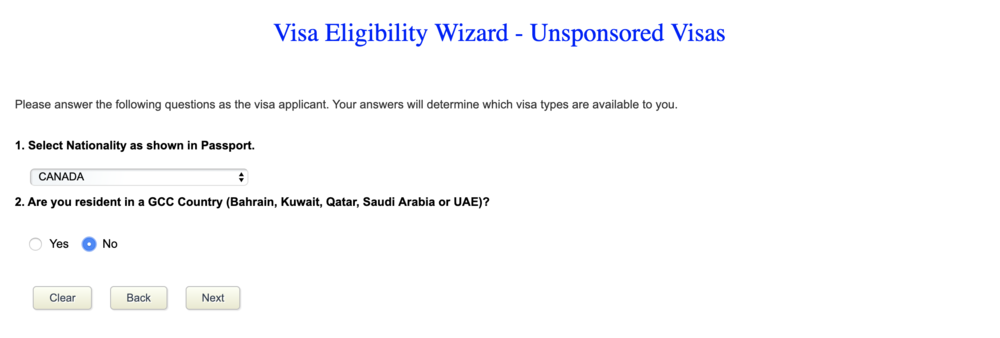
Following that, you’ll be asked to choose the exact visa type you’re applying for. This will depend on how long you intend to visit Oman. Since my trip was only for a few days, I chose the 26A Tourist Visit Visa, which allows nationals of “Group 1 countries” to visit Oman for up to 10 days.
The cost of this visa is a very reasonable 5 OMR ($18), although the 30-day visas and one-year visas are more pricey at 20 OMR ($70) and 50 OMR ($176), respectively.

The application process then begins in earnest with the collection of basic personal information, like your name and passport details.
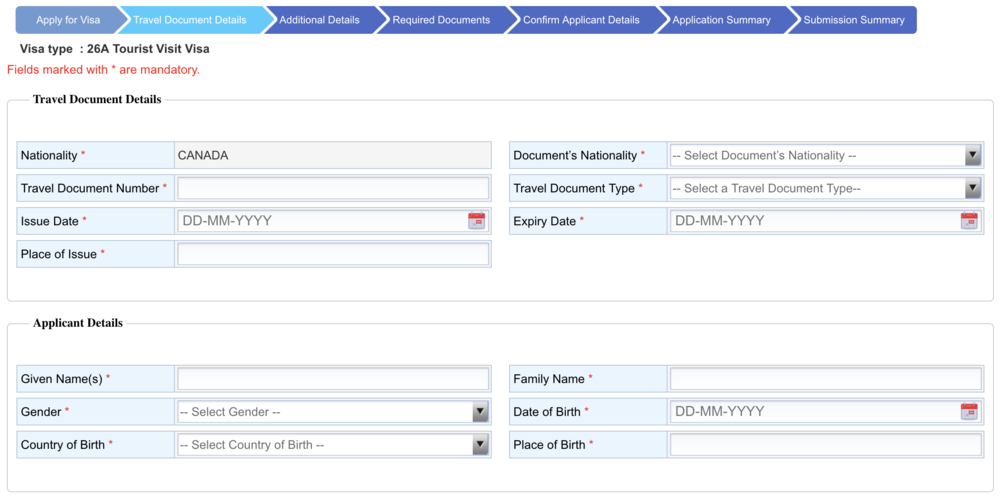
The next screen asks for your mother’s name, marital status, and the visa numbers of any previous Oman visas you’v received. No idea why they need to know your mother’s name, but it’s an easy enough ask.

That’s followed by a screen asking you to submit a recent portrait photo, as well as a photo of your passport information page.
The usual requirements of passport photos apply (upright orientation, clear background, colour photo, no glasses, etc.) but since this is an e-Visa application, there’s no requirement at all to have the photo taken professionally. I simply snapped an iPhone selfie against a white wall with a neutral expression on my face, and it worked just fine.

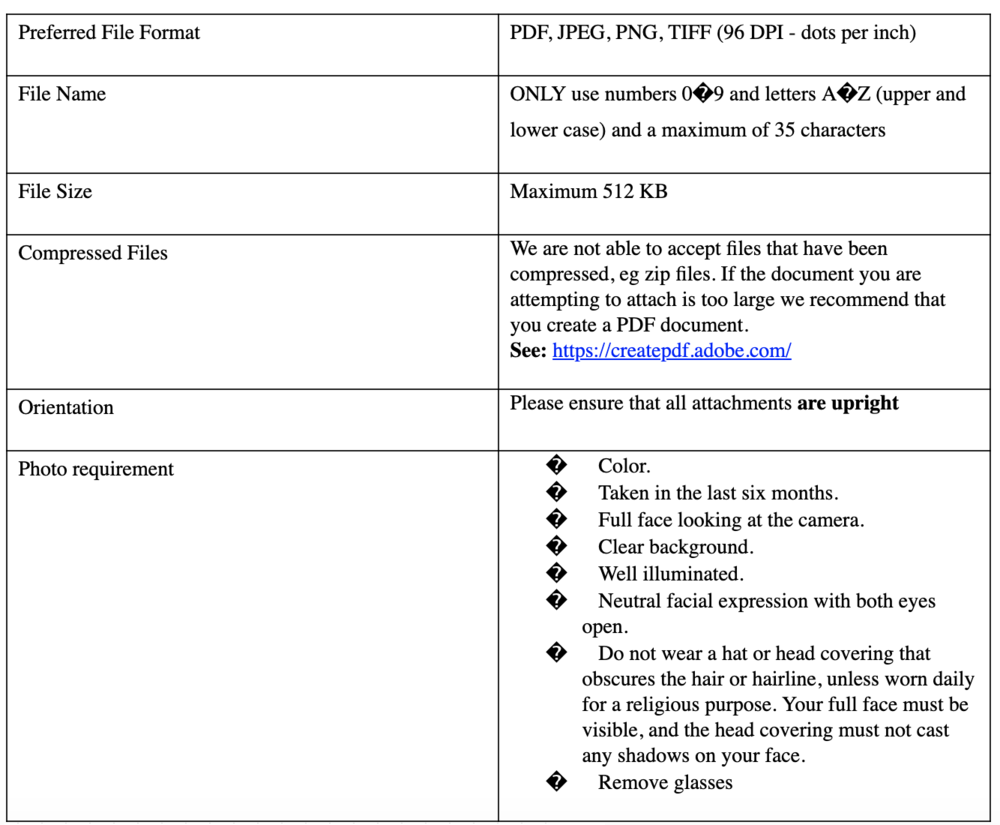
That’s about all there is to the process. The next few steps simply ask you to confirm your submission, before you’re taken to the payment page to take care of your 5 OMR visa fee.
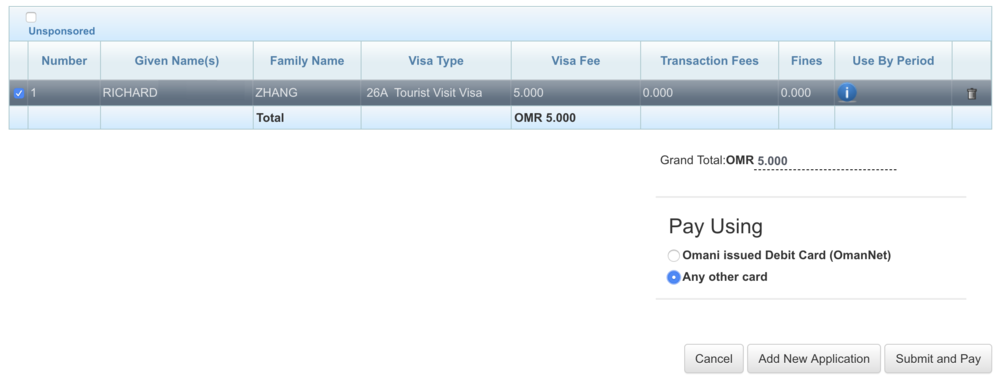
Receiving the Visa
The application process itself couldn’t be more straightforward, but I did run into some uncertainty in terms of how the visa was delivered.
First off, the Royal Oman Police website states that travellers are required to apply for their Oman e-Visas at least four days and no more than one month before they plan to arrive in Oman. Unfortunately, I did not heed this advice, having continually put off the task until only three days before arrival. At that point, I frantically submitted the visa application, crossing my fingers that I’d receive it in time despite having missed the prescribed time period.

Well, the processing time turned out to be surprisingly quick. I had submitted our applications at around midnight, and by 5am the next morning, I had received a confirmation email letting me know that my girlfriend Jessica’s visa application had been approved.
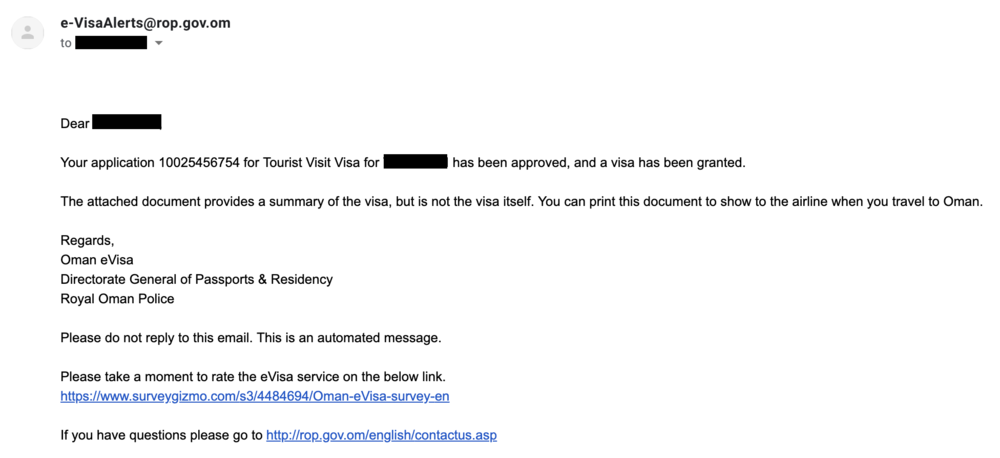
The email you receive contains an attachment, which is a summary of the visa and not the visa itself (which is fully electronic and simply logged in the immigration officers’ systems). You are supposed to print out the visa summary to show the airline that you possess the necessary documents to enter Oman.
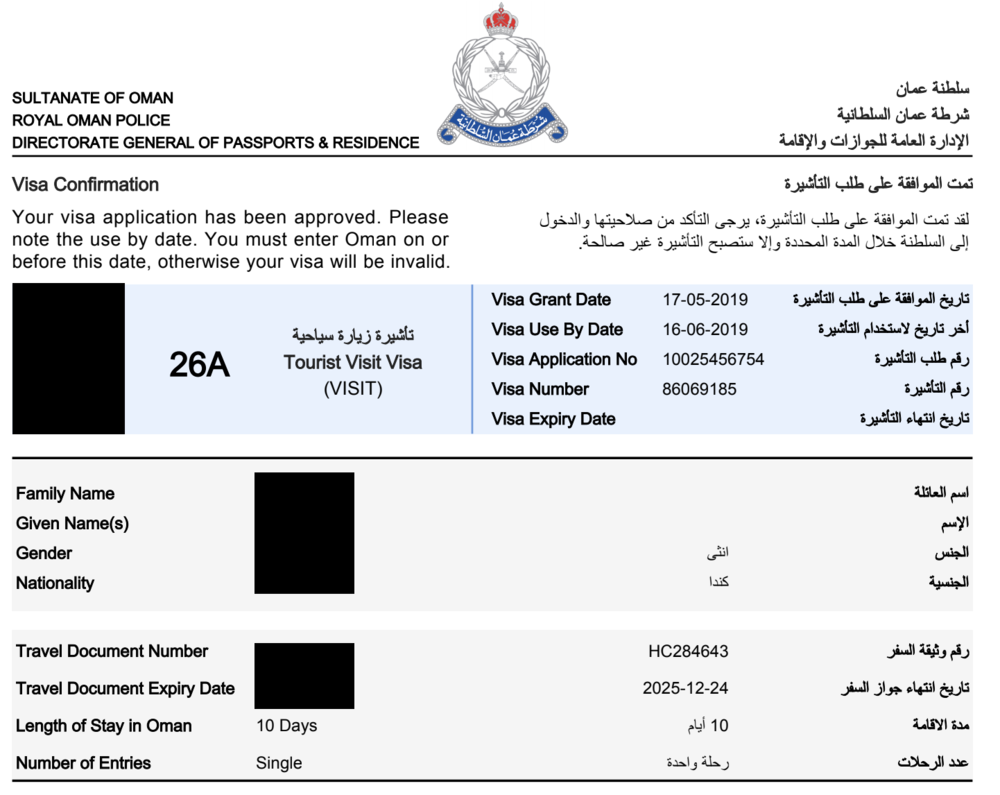
The problem was that while Jessica had received a confirmation email, my confirmation email never arrived. About a day before I was scheduled to travel to Oman, though, I logged back in to the visa website and saw that both of our applications had indeed been approved.

With no sign of my confirmation email arriving, I figured there’d be no issue entering Oman nonetheless, since after all the application was showing as approved, meaning that a visa had been granted in the system.
As we approached the immigration counters at Muscat International Airport, though, I did have a bit of a scare, since the immigration officer asked for our visa summary printouts and questioned why mine was missing. However, I simply let him know that my confirmation email was never received, but that the e-Visa was approved on the website. Thankfully, after a bit of clicking around on the computer, he was able to successfully locate it and grant us safe passage into the country.
Conclusion
The Oman e-Visa process is one of the smoothest I’ve encountered, although the unreliability of their confirmation emails means that you’ll have to be diligent about checking the website and perhaps following up if necessary. As long as your visa application shows up as “Approved” on the website, you should be good to go, but I’d recommend applying at least a few weeks in advance to avoid any stressful situations that may arise.
If you’re interested in combining a trip to Oman with one of the other Gulf countries, it’s also worth looking into the combined tourist visas with either Qatar or the Emirate of Dubai in the UAE – both of these options will result in some small savings on visa fees if you’re travelling directly between both territories included on the visa.













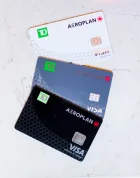

Canadians are now allowed 14 days free visa on arrival. The free visa is only available at the airport. You will need to present a confirmed hotel booking, confirmed return flight and health insurance. The 14 day visa cannot be extended.